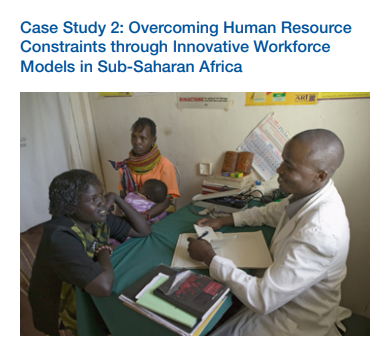This page has moved. If you are not redirected, click here.
Revolutionizing Healthcare in Developing Nations Through Data
Jeremy Howard, a prominent figure in artificial intelligence and healthcare innovation, highlights a critical issue in global healthcare: developing nations have less than 10% of the medical experts they need. This severe shortage means most patients lack access to proper medical diagnostics, while existing physicians are overwhelmed with work.

The Scale of the Problem
In many developing countries, the healthcare situation is dire. Take Nigeria as an example - the country would need to multiply its current physician workforce by 12 just to reach standard healthcare coverage levels. This would require an investment of US$51 billion, which is ten times their current annual healthcare budget [World Economic Forum Report, 2014].
A Data-Driven Solution
Howard proposes a transformative approach: combining medical data sources with effective analysis tools to automate significant portions of the diagnostic process. This strategy doesn’t aim to replace medical professionals but rather to amplify their capabilities.
How It Works
The solution leverages two key components:
- Automated Diagnostics: Advanced systems analyze patient data to provide initial assessments and recommendations
- Resource Optimization: Medical experts can focus on complex cases while routine matters are handled by AI-assisted systems
Real Impact
This approach is already showing results in various implementations:
- Remote Healthcare: AI-powered diagnostic tools enable healthcare workers in remote areas to provide better care
- Efficient Triage: Automated systems help prioritize cases, ensuring critical patients receive immediate attention
- Standardized Care: Digital protocols help maintain consistent quality across different healthcare facilities
Looking Forward
By embracing these technological solutions, developing nations can potentially bypass traditional healthcare development stages. This leapfrogging effect could help establish more efficient, accessible, and affordable healthcare systems where they’re needed most.
The future of healthcare in developing nations doesn’t just lie in adding more doctors - it’s about smartly using technology to maximize the impact of existing medical expertise.
Reference:
World Economic Forum - Health Systems Leapfrogging in Emerging Economies Project Paper, 2014